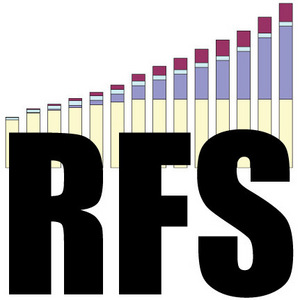Growth Energy to testify at EPA hearing on 2014 RFS RVO

December 5, 2013
BY Growth Energy
Growth Energy’s Director of Regulatory Affairs Chris Bliley will testify at the U.S. EPA public hearing at the Hyatt Regency Crystal City in Va., to highlight the resounding success of the renewable fuel standard (RFS) and also outline why the EPA’s 2014 proposal to reduce the statutory renewable volume obligations would eviscerate the RFS, thereby causing severe harm to farmers, the biofuels industry and the nation’s economy.
In his testimony, Bliley notes, “The RFS was approved by a bipartisan majority in Congress and enacted into law nearly six years ago.” He further explains that the RFS is a modern day American success story doing exactly what it was designed to do, noting that the RFS has “created jobs, revitalized rural America, injected much-needed competition into the vehicle fuels market, lowered the price at the pump, improved the environment, and made our nation more energy independent.”
Advertisement
Advertisement
Bliley explains that the “oil industry has used its considerable power to delay, litigate, and undercut the RFS.” He added that the proposed volume cuts fundamentally ignore the Congressional intent of the RFS as well. “The program was designed to spur investment in renewable fuels, not to punish those who have invested while rewarding those who have impeded development.”
Bliley adds, “Since the RFS’ inception, the ethanol industry has produced ample biofuel to meet the statutory obligations of the RFS and it has ample capacity to do so again in 2014. With this proposal, EPA is waiving the statutory volumes – including, for the first time, the total renewable fuel volume – on the ground that there is insufficient demand for higher-level blends, notwithstanding the fact that the oil industry has refused to give consumers a choice at the pump. The statutory volumes can easily be met if the oil industry would simply comply with the original intent of the RFS and allow higher ethanol blends like E15 to be competitively sold to consumers.”
Advertisement
Advertisement
Furthermore, he discusses the direct impact the RFS has had on farming, “This proposal would also jeopardize the tremendous success our nation’s farmers have seen as a result of the certainty of the RFS with net farm income increasing by 51 percent while federal farm payments have decreased 57 percent.”
In conclusion, Bliley notes that, “now is not the time to retreat from the goals of the RFS…and the EPA should move the RFS forward, not backward.”
Click HERE to read Bliley’s full testimony
Related Stories
The U.S. EPA on July 8 hosted virtual public hearing to gather input on the agency’s recently released proposed rule to set 2026 and 2027 RFS RVOs. Members of the biofuel industry were among those to offer testimony during the event.
The USDA’s Risk Management Agency is implementing multiple changes to the Camelina pilot insurance program for the 2026 and succeeding crop years. The changes will expand coverage options and provide greater flexibility for producers.
President Trump on July 4 signed the “One Big Beautiful Bill Act.” The legislation extends and updates the 45Z credit and revives a tax credit benefiting small biodiesel producers but repeals several other bioenergy-related tax incentives.
CARB on June 27 announced amendments to the state’s LCFS regulations will take effect beginning on July 1. The amended regulations were approved by the agency in November 2024, but implementation was delayed due to regulatory clarity issues.
SAF Magazine and the Commercial Aviation Alternative Fuels Initiative announced the preliminary agenda for the North American SAF Conference and Expo, being held Sept. 22-24 at the Minneapolis Convention Center in Minneapolis, Minnesota.
Upcoming Events










